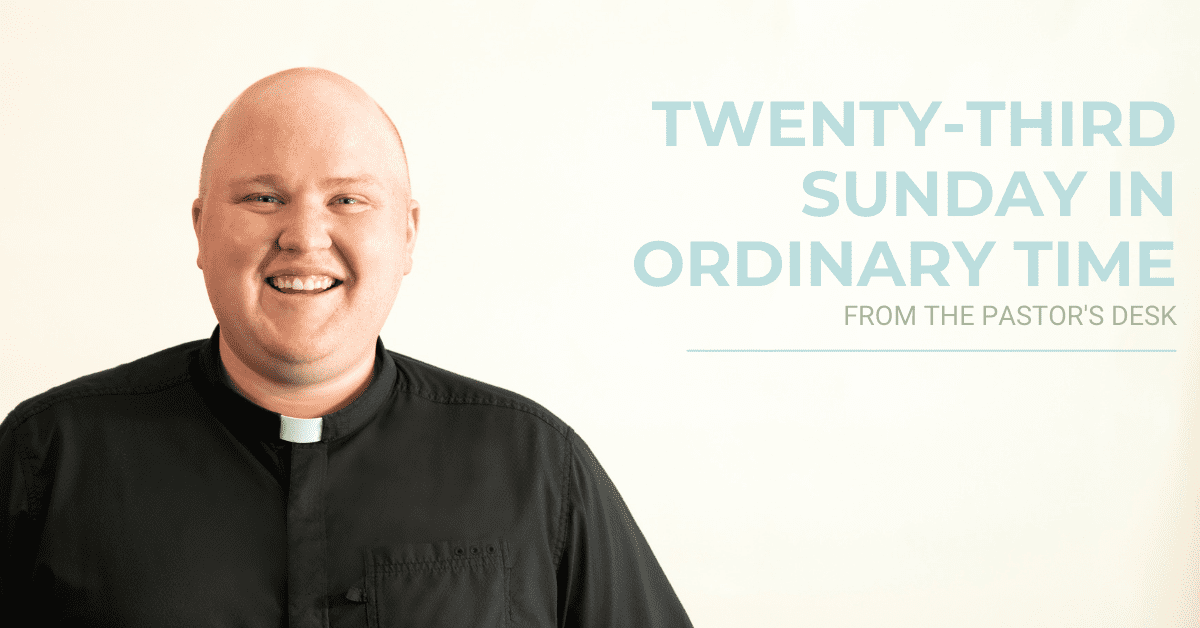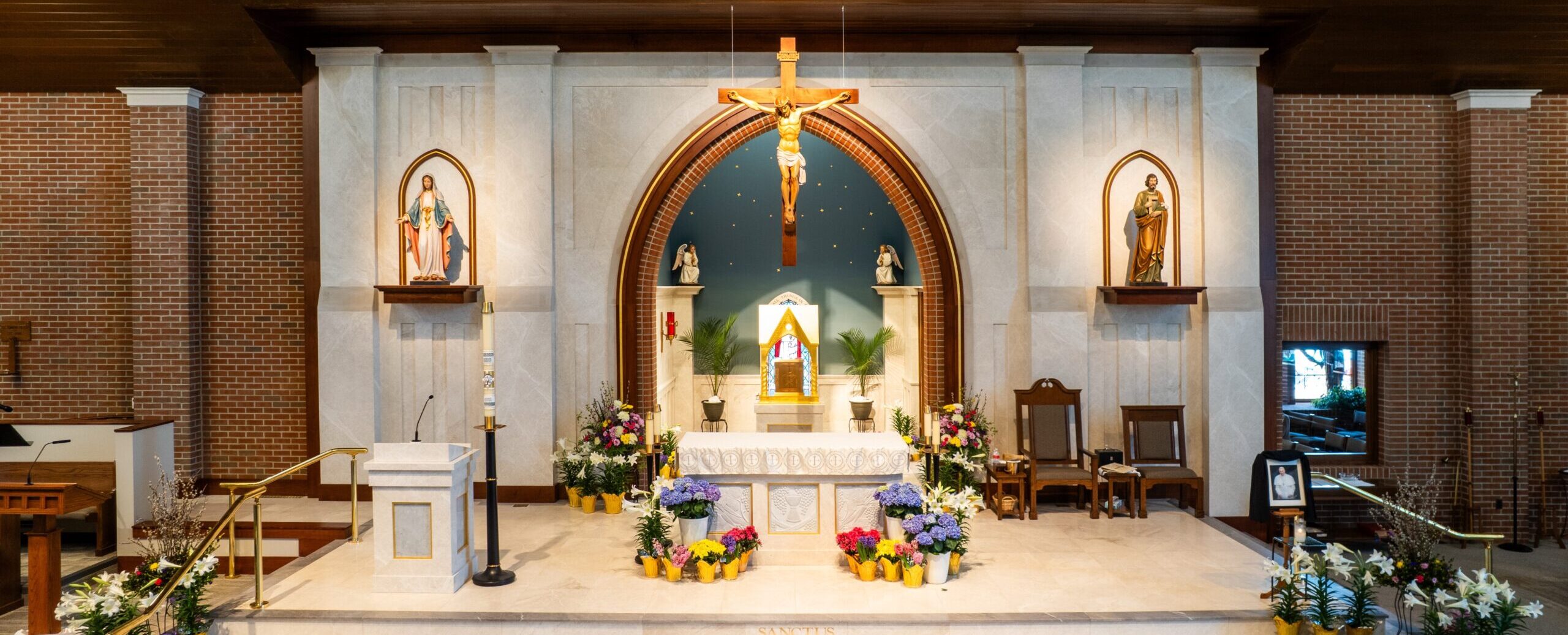Twenty-Third Sunday in Ordinary Time

Dear Brothers & Sisters in Christ:
This summer, during my down time, I’m watching The Practice. It’s an interesting drama that follows a law firm and the cases they take on. One of the common themes is “the interpretation of the law.” Whose authority is it to interpret and what is the criteria that needs to be considered when interpreting the law?
It seems to me “the interpretation of the law” has four essential components.
1. The framers of the Constitution; the people responsible for writing the Constitution.
2. The Constitution itself, which remains the supreme law of our country today.
3. The judge, the one tasked with interpreting what the framers and the law says, to ensure the integrity of the law is followed.
4. The last essential component is often the most debated one; which explains our need for lawyers, courts, and judges, and that is the issue of precedent, which simply put means that earlier actions or events offer a guide to future subsequent events. As an example, if we as a staff have a birthday party for a staff member, we have created precedent. Now moving forward, when there is a birthday for another member of our staff, we will have a gathering to celebrate that person. The prior event informs our decision-making for later events or actions.
For all you lawyers and political scientists, forgive me, I have a very rudimentary understanding of these things. And yet, with that said, I have found these questions helpful when explaining the laws, rules, and beliefs of the Catholic Church. “Whose authority is it to interpret the law?” and “What criteria do we use to interpret the law?” The reason is: the essential components for interpreting the law are analogous to interpreting/understanding the teachings of the Catholic church.
1. Our founder is Jesus Christ – similar to the framers of the constitution (our founding fathers).
2. The Bible itself; the book that explains to us who God is and the rules for right living, are akin to the Constitution that gives us the guidelines for right living in the United States.
3. Tradition; where the beliefs, practices, and traditions of earlier Christians create precedent for how future generations of Christians act and worship.
4. Finally, the court (the judges) are those tasked with interpreting the law to make sure it is followed correctly. So too, then, is the Catholic Church (the Magisterium) tasked with ensuring that what is handed onto us through Sacred Scripture and Sacred Tradition remains faithful to what Jesus Christ himself taught and preached.
It is important that this analogy clarifies the two questions at the beginning of this column, “Whose job is it to interpret?” and “What criteria is needed?” The answer for us is clear: 1) It is the Church’s job (authority) to interpret and pass on the faith, and 2) Jesus, the scriptures, and the traditions are the criteria for how the Church hands on the faith today. More generally, the way in which Church law operates is “cleaner” than civil law, as it pertains to the Constitution. We can’t always be sure of what the framers thought, so we make a best guess. We know with the certainty of faith what the mind of Christ is. In other words, the interpretation of the Magisterium is without error, whereas the interpretation of jurisprudence in civil law can err.
The big question is this: What does all of this have to do with the Eucharist? Everything. As I spend these next several weeks explaining the Eucharist, we must start here. We must start from this foundational place. That the Eucharist is a belief so core and fundamental to our faith, that each essential component is present in our belief in the Sacrament of the Eucharist – the sacrament that is the real and true presence of Jesus Christ, body, blood, soul, and divinity.

